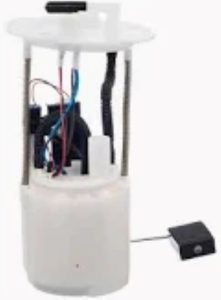Diesel fuel pump calibration is an important processes: if not performed accurately the fuel is going never to achieve the complete combustion. High-pressure diesel injection pumps are used to achieve high fuel pressures (usually between 15,000 and 30,000 psi), which is required for combustion in high-compression diesel engines. By atomizing diesel fuel under high pressure, this calibration improves combustion, fuel economy and engine performance.
Technicians use special equipment to set the fuel delivery rate and injection timing at a pump, such as a fuel injection test bench. These benches reflect engine conditions, allowing each pump to be accurately calibrated to specific engine parameters. As an example, high-torque applications such as heavy-duty trucks need fuel pumps with a higher volume for every injection cycle, which is important to the power output when loads are high. It is therefore essential for diesel engines that are used in commercial transport for fuel delivery rate to be calibrated within 5%, which can drastically change engine power output and also its efficiency.
High-quality testing is done on each of those fuel pump gains during calibration testing by manufacturers to make sure they need to fit industry standards. As an example, Bosch — a global leader in diesel system manufacturing — runs all pumps through more than 500 hours of performance testing to check the calibration and functionality of the pump and its durability. That kind of testing allows them to prove out that every pump can handle the rigors of high-pressure diesel systems for an extended period with no degradation in efficiency.

Diesel fuel pump calibration also provides timing of injection of the fuel to match engine cycles, which eliminates problems such as knocking that occurs if the fuel ignites too soon during the compression stroke. With exact timing, the fuel ignites at the most opportune moment to produce optimal power and optimal emissions. Take for example engines designed for emissions compliance running to Euro 6 or Tier 4 Final standards which require tight calibration tolerances that mitigate pollutants via efficient fuel burn.
In diesel engines with more extreme climates, calibration can also mitigate for increases in fuel viscosity, as diesel fuel will thicken at colder temperatures, impacting flow rates. This can be accommodated by an adjustment in the fuel pump calibration, allowing delivery pressure to be increased marginally as temperatures drop to ensure uniform fuel atomization.
In sectors where remarkable amount of the equipment is operated with diesel engines like construction or agriculture, well-calibrated Fuel Pump systems are indispensable for getting the job done and eliminating machine downtime. Calibrating properly makes diesel engines to run at optimal levels, providing dependable power and fuel saving under extreme circumstances, and lowering service requirements by prolonging the life of the pump.